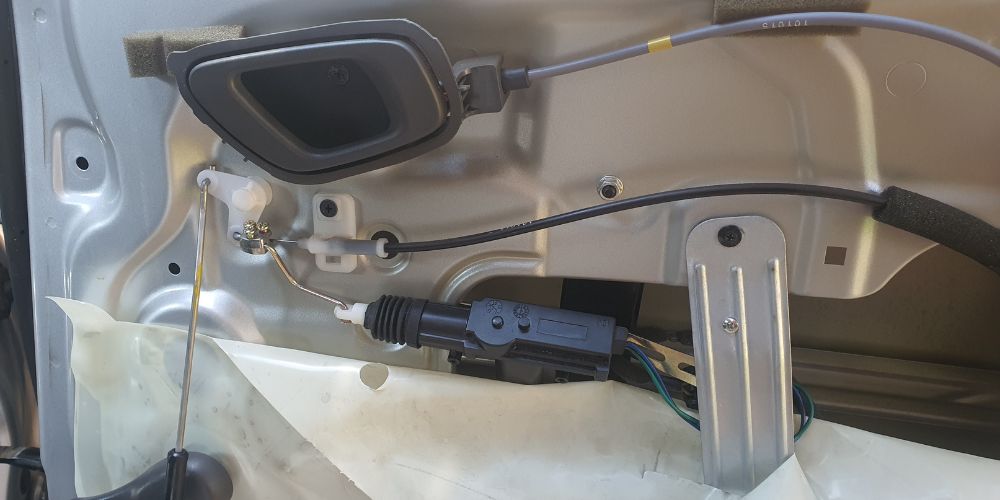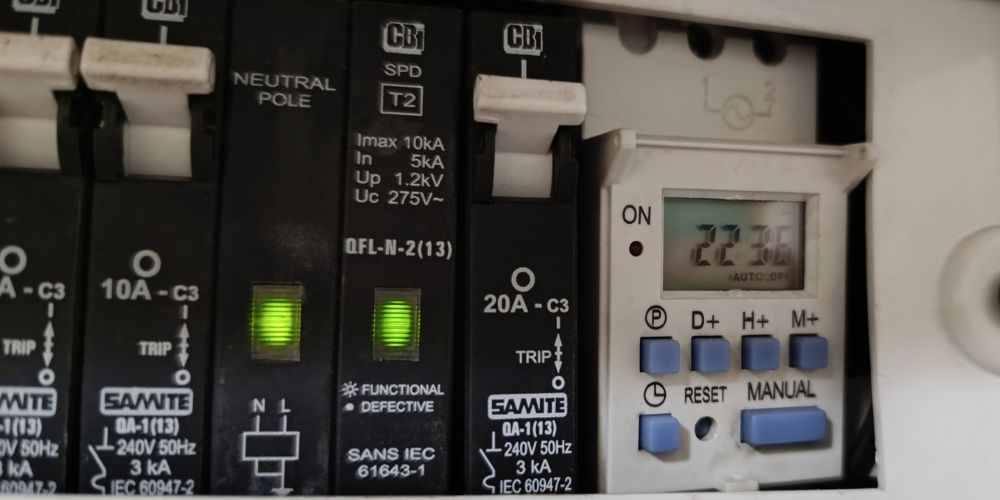Central locking systems are a convenient feature in modern vehicles, providing enhanced security and ease of use. However, as with any mechanical and electronic system, they can develop problems over time, leading to doors that refuse to lock or unlock. These issues can be frustrating and potentially risky, leaving your vehicle vulnerable to theft.
In this article, we’ll explore common problems associated with central locking systems, their causes, and how The Handy Husband can help you get your system back in top shape.
Common Central Locking System Issues
- Door Won’t Lock or Unlock
- Symptoms: One or more doors fail to lock or unlock when using the key fob or central locking switch.
- Causes: This can be due to a faulty actuator, damaged wiring, or issues with the central locking control unit.
- Intermittent Operation
- Symptoms: The central locking system works sporadically, sometimes locking or unlocking all doors, and other times not responding at all.
- Causes: This could be due to loose connections, a weak battery in the key fob, or corrosion on electrical components.
- Slow or Noisy Operation
- Symptoms: The doors lock or unlock slowly or make unusual noises.
- Causes: Worn-out actuators, mechanical binding within the door lock mechanism, or insufficient lubrication can be the culprits.
- Key Fob Not Working
- Symptoms: Pressing the buttons on the key fob has no effect on the central locking system.
- Causes: This could be due to a dead battery in the key fob, a need for reprogramming, or internal damage to the key fob itself.
Diagnosing the Issues
When diagnosing central locking problems, a systematic approach is essential. Here’s how The Handy Husband tackles these issues:
- Initial Inspection
- Visual Check: Inspect the door locks, key fob, and central locking switch for visible damage.
- Battery Test: Ensure the key fob battery is not dead and replace it if necessary.
- Electrical Testing
- Wiring Inspection: Check for broken or frayed wires, particularly in areas prone to movement, such as the door hinge area.
- Actuator Testing: Test the door lock actuators to ensure they receive the proper voltage and operate as intended.
- Control Unit Diagnostics
- Scan Tool: Use a diagnostic scan tool to check for error codes in the vehicle’s central locking control unit.
- Software Update: Ensure that the control unit has the latest software updates, which can resolve some operational glitches.
- Mechanical Examination
- Lubrication: Lubricate the mechanical parts of the door locks to ensure smooth operation.
- Component Check: Inspect and replace any worn-out components like actuators or locking mechanisms.
Solutions and Repairs
Once the problem is identified, The Handy Husband employs a range of solutions to fix the issue:
- Actuator Replacement
- If a door lock actuator is found to be faulty, it is replaced with a new, high-quality part to restore proper locking function.
- Wiring Repairs
- Damaged wiring is repaired or replaced to ensure a reliable electrical connection.
- Control Unit Replacement or Reprogramming
- If the central locking control unit is defective, it may need reprogramming or replacement to ensure it communicates effectively with all door actuators.
- Mechanical Repairs
- Any worn or damaged mechanical parts within the door lock are repaired or replaced, and the mechanisms are lubricated to ensure smooth operation.
Preventive Maintenance Tips
To avoid future central locking issues, consider the following maintenance tips:
- Regular Inspection
- Periodically inspect the door locks and actuators for signs of wear and tear.
- Keep It Clean
- Ensure the key fob and locking mechanisms are kept clean and free of debris.
- Use Quality Parts
- When repairs are necessary, use high-quality replacement parts to ensure longevity and reliability.
- Professional Check-Up
- Have your vehicle’s central locking system checked by a professional regularly, especially if you notice any changes in its operation.
Why Choose The Handy Husband?
The Handy Husband specializes in diagnosing and fixing central locking systems with precision and expertise. Here’s why you should trust them with your vehicle:
- Experienced Technicians: Skilled in handling various central locking system issues across different vehicle makes and models.
- Comprehensive Service: From diagnosis to repair, they provide end-to-end solutions for all your central locking problems.
- Quality Assurance: They use only high-quality parts and tools, ensuring durable repairs.
- Customer Satisfaction: Committed to providing excellent customer service and ensuring your vehicle’s security and convenience.
Don’t let central locking system issues compromise your vehicle’s security and convenience. Contact The Handy Husband today for professional and reliable repairs that will restore your peace of mind.



